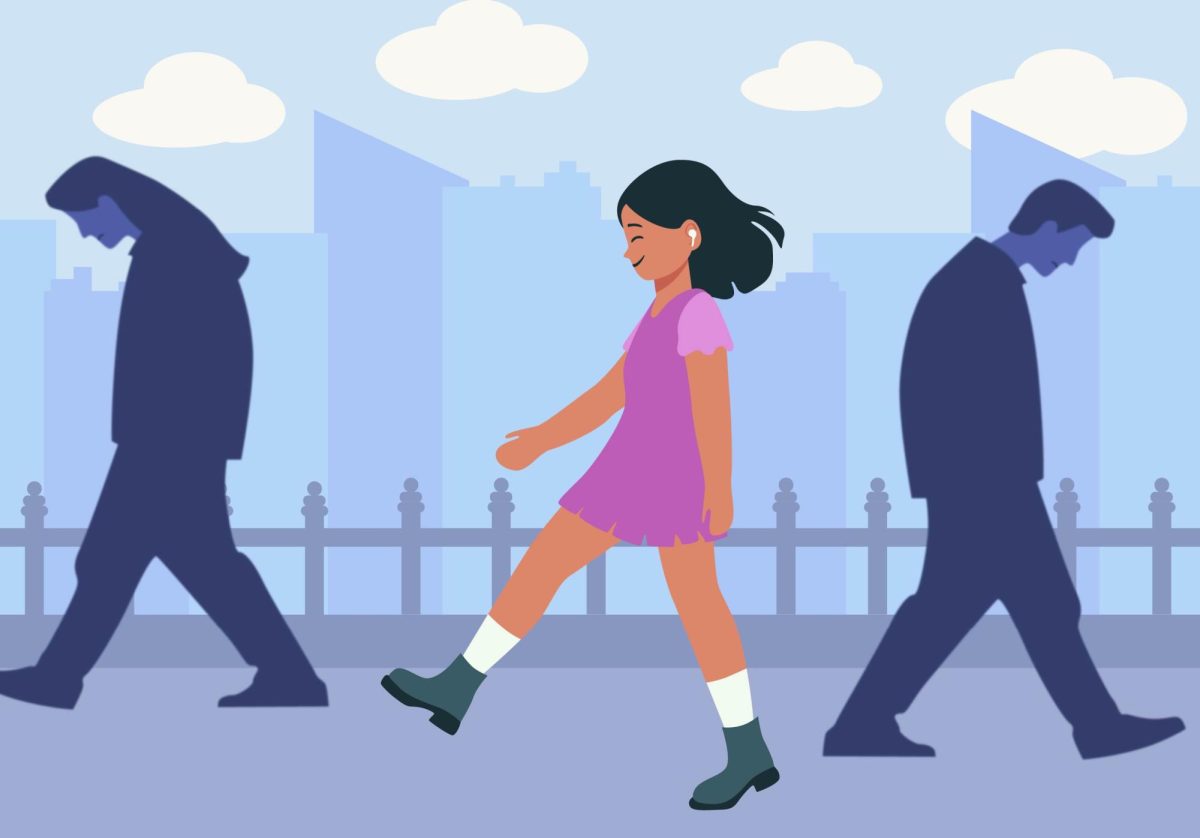Every phone that is sold in Japan and Korea comes with one infuriating feature that isn’t available anywhere else: the shutter sound. You can’t turn it off, you can’t lower it — you’re stuck with it. Every single picture you take on one of these phones blares an obnoxious ca-CHUNK, whether you like it or not.
Why?
For decades, Japan and Korea have been plagued with issues of people taking invasive, sexually-malicious photos of women in public. “Creepshots” and voyeurism are such uncomfortable and pervasive issues in the two countries that both Japan and Korea introduced shutter sound regulations by the early 2000s. It’s a clever, albeit frustrating, solution to a deeply unsettling problem.
On the other hand, while Americans fortunately don’t have to deal with predatory voyeurs on the same scale, we should still be as conscious of privacy as our Japanese and Korean counterparts have.
I’m not talking about a mandatory shutter law. Rather, Americans must diligently work to be respectful and much more conscious of each other’s privacy in the digital era.
This should be extremely obvious. All of us have had this message jackhammered into our brains since preschool. However, log onto TikTok, Instagram, YouTube or any other short-form video site, and you’ll begin to see some people might have missed the memo.
It’s everywhere on social media. Uncomfortable, out-of-context clips of strangers ambling about their business somehow track millions of likes on these platforms. Oftentimes, the clips are paired with disparaging or humiliating asides about the subject’s appearance or behavior, while commenters jeer from the sidelines.
In August of this year, for example, TikTok user Mat Munsch amassed almost 6 million views and over 600,000 likes responding to a video of him and his girlfriend that was taken without his knowledge. The original video, now deleted, mocked him and his girlfriend for flirting together as they waited in line for a carnival ride.
Another video, taken in May, featured TikToker Seth Meiring secretly filming a cashier as he attempted to buy beer using a fake ID. The fake ID featured the cashier’s face, who he secretly photographed ahead of time. Garnering over 4 million views and 270,000 likes, the clip shows the cashier being visibly uncomfortable with the prank, adding an unsettling atmosphere to the video.
These are by no means isolated incidents.
Buzzfeed, Huck and Mashable have all reported on the troubling rise of filming people without their knowledge for viral clout and how it’s become uncomfortably accepted in digital culture. While the concept of filming people without their knowledge and consent has been around for decades, the advent of ultra-efficient social media algorithms means these clips can easily be seen by millions of people with minimal effort.
This all begs the question: is it inherently wrong to film people without their knowledge?
“I think it’s not a great practice,” said Brooklyn Dean, social media director for the University of Minnesota’s sport management association. “I think you should always try to ask permission, just from an ethical standpoint.”
However, the legal situation regarding this issue is somewhat opaque. Minnesota is a one-party consent state — you don’t get to consent to someone filming you. However, the two main exceptions to this rule are when filming interferes with police activity or when you record someone in an area “where a reasonable person would have the expectation of privacy.” In most cases, this does not extend to public spaces and is largely limited to one’s home or property.
Regardless, even if the law is nebulous, there is still quite a bit of professional consensus on the matter.
“Especially with the working-inside-of-sports organization perspective, with the Gophers and the Wild . . . I think it’s pretty well known,” Dean said. “It should be standard practice these days to reach out and ask for permission beforehand.”
This sentiment is shared with students as well.
“If I’m the subject being filmed, I’d rather be asked first,” said Jeremiah Hockett, a third-year computer engineering student. “I just don’t feel comfortable being on camera.”
Whatever the case, it’s imperative that we begin to acknowledge how problematic the situation has become. These videos don’t rack up hundreds and thousands of likes and millions of views out of nowhere — we must acknowledge we are all complicit in their rampant success. Whether or not we reward invasive, predatory behavior rests upon our individual decisions.
So, the next time you see a hilarious TikTok or Instagram Reel of someone doing something baffling, questionable or completely mundane, just remember, that could’ve easily been you.














